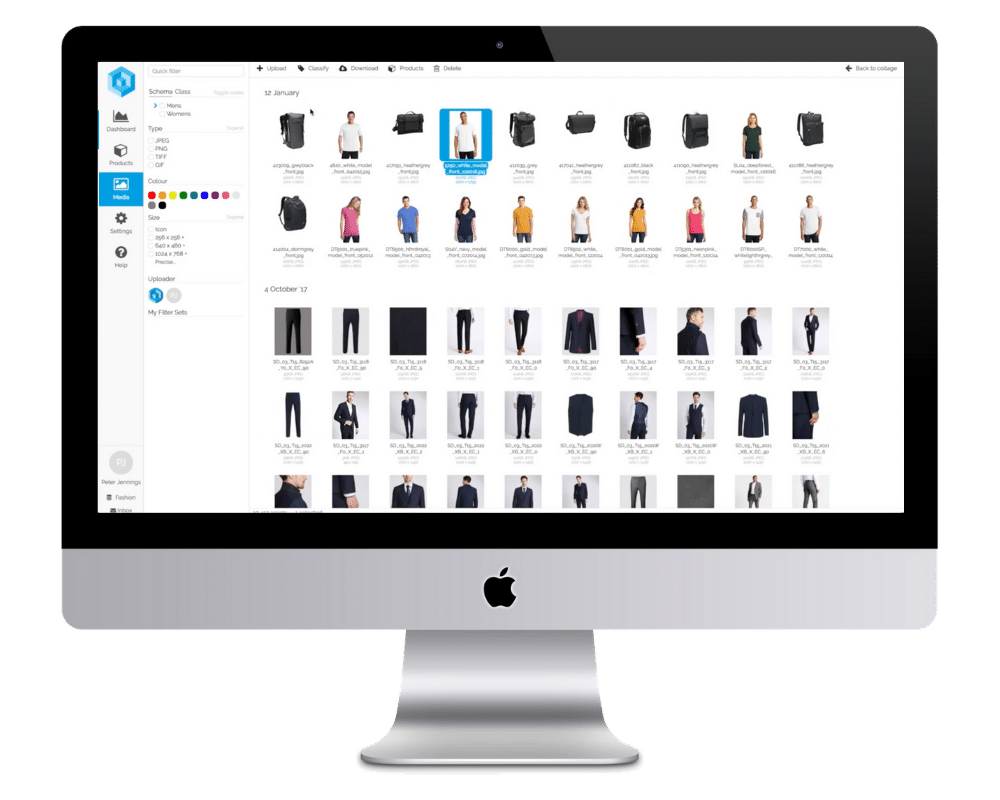What is a Digital Product Passport?
At its core, the Digital Product Passport is a digital record that provides detailed information about a product’s lifecycle, from raw materials and manufacturing processes to usage, repair, and end-of-life recycling. In other words, it’s a product’s “ID card,” accessible via QR codes, RFID tags, or other data carriers. Overall, the objective of the DPP is to enhance transparency, empower consumers to make informed choices, and facilitate the transition to a circular economy by ensuring products are more sustainable, repairable, and recyclable through new regulations.

The EU’s introduction of the DPP under the Ecodesign for Sustainable Products Regulation “ESPR” is part of its broader European Green Deal and Circular Economy Action Plan, which aims to reduce waste, lower carbon emissions, and promote sustainable consumption. The ESPR entered into force in 2024 as the commission’s approach to more environmentally sustainable and circular products.
What does that mean to the UK products?
While the UK is no longer part by European Union, the EU’s market regulations and laws still binds them. This interconnected nature of international trade means that UK businesses exporting to the EU will need to comply with these new requirements to maintain access to this critical market. In conclusion, UK businesses that sell their products in Europe will need to comply with the EU and ESPR regulations and adopt the Digital Product Passport for all their products to keep selling in the European market.
Why Should UK Businesses Care about New Regulations?
For UK businesses, the Digital Product Passport represents both a challenge and an opportunity. On one hand, compliance will require significant adjustments to supply chain management, data collection, and product labelling. On the other hand, adopting the DPP early can position UK companies as leaders in sustainability, opening doors to new markets and strengthening customer trust and avoiding the loss of a huge market.

The EU is one of the UK’s largest trading partners, and any regulation affecting EU markets will inevitably impact UK exporters. Non-compliance could result in lost business, reputational damage, or even exclusion from the EU market. Moreover, as sustainability becomes a global priority, similar regulations may soon emerge in other regions, including the UK itself. By preparing now, businesses can future-proof themselves against a wave of impending changes.
Who is involved in the DPP?
While the Digital Product Passport is the company’s responsibility, the responsibility is divided across multiple stakeholders in the supply chain. Each actor in the chain plays an important role regarding the DPP success and compliance. For example, the brand and the manufacturer are responsible for creating and managing product data, as well as making sure the data is validated and up to date. Collecting all the product data and consistently updating it is key for complying with the Ecodesign for Sustainable Product Regulations. However, with such responsibility, the brand needs to adopt new technologies to help streamline data collection, and collaborative platforms for easier data flow between actors.

It’s not just the brand and manufacturers taking all the responsibility. The suppliers are also heavily involved in delivering a successful Digital Product Passport. Suppliers will need to share information, such as information about materials type, origin, production process, certifications to ensure ethical sourcing, etc.
If the supplier fails to deliver all the information needed, manufacturers and brands will have to shift to a different supplier who is willing to share and be more transparent.
Key Components of the Digital Product Passport
The Digital Product Passport will include a wide range of data points, such as the product’s composition, origin of materials, environmental impact, repair instructions, and recycling guidelines. This information must be easily accessible to consumers, regulators, and other stakeholders, ensuring full transparency throughout the product’s lifecycle.
How Can UK Businesses Prepare for New Regulations?
Preparation for the Digital Product Passport should begin with a thorough assessment of your current operations. Start by mapping your supply chain to identify where data gaps exist, and which partners will need to involve in the DPP process. Communication between you and your suppliers/manufactures is essential to streamline and collect the data needed for the DPP.
Understanding the importance of product information management and its role in handling and collecting the data is needed for a smooth DPP implementation, look at Product information management as helping hand and not just a software. With the right technology, DPP is an opportunity rather than a challenge.

The Road Ahead
The Digital Product Passport is more than just a regulatory requirement—it’s a reflection of a broader shift toward sustainability and transparency in global commerce. For UK businesses, the time to act is now. By embracing the DPP, your company can not only ensure compliance with EU regulations but also position yourself as a leader in the transition to a circular economy.
Remember, the goal is not just compliance—it’s about contributing to the circular economy and enhancing sustainability through full product transparency. The DPP is an opportunity to showcase your company’s sustainable efforts to your consumers, building trust and empowering your customers with the right information.
That’s where Product Information Management (PIM) becomes crucial. A modern PIM system centralizes and enriches your product data, ensuring accuracy, consistency, and traceability across your entire supply chain. These capabilities are essential for DPP compliance, as businesses will need to provide detailed and dynamic product information in a structured, shareable format. With a composable PIM in place, you can seamlessly feed required data into your Digital Product Passports—turning compliance into a competitive advantage.
While the road ahead may seem daunting, the benefits of early adoption far outweigh the challenges. From enhanced customer trust to improved supply chain efficiency, the DPP offers a wealth of opportunities for businesses willing to invest in a sustainable future. As the saying goes, “The best way to predict the future is to create it.” For UK businesses, the Digital Product Passport is a chance to do just that.













